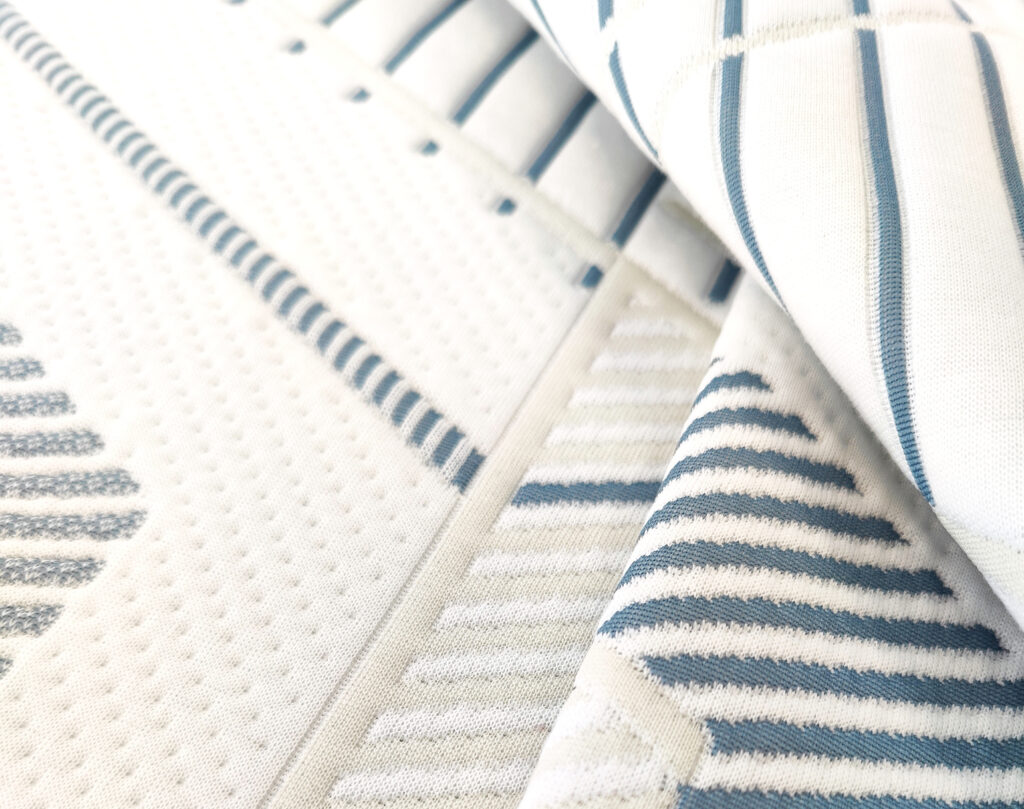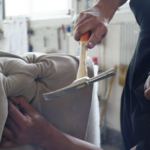The textile industry ranks among Europe’s top 5 contributors to greenhouse gas emissions. To help combat climate change, BekaertDeslee has set near-term emission reduction targets aligned with the Paris Agreement. They have now been approved by the Science Based Targets initiative (SBTi), an independent organization.
The production and consumption of clothing has a negative impact on the environment and climate change. Household textiles, including mattresses, also play a substantial role. For instance, 35 million mattresses are incinerated or end up in landfills each year in Europe.
Eric Lachambre, CEO of BekaertDeslee states: “We are dedicated to improving the lives of many by committing to a significant reduction of our carbon footprint. By calculating our emissions according to the Greenhouse Gas Protocol and identifying reduction opportunities, we aim to achieve our goals with the support of the Science Based Targets initiative (SBTi).”
Specifically, BekaertDeslee commits to reducing its Scope 1 (direct emissions from owned or controlled sources) and Scope 2 (indirect emissions from the generation of purchased electricity, heating and cooling) emissions by 64.2% by 2030 compared to 2021 levels. In 2023, this amounted to 46,395 tCO2e, which represents less than 10% of the company’s total footprint. The vast majority of the footprint is linked to BekaertDeslee’s upstream and downstream value chain (Scope 3), mainly from purchased goods and services and end-of-life of sold products. In 2023, this totaled 483,184 tCO2e, equivalent to approximately 274,538 round-trip flights from Paris to New York.
These targets have now been validated by the Science Based Targets initiative (SBTi), a corporate climate action organization that enables companies and financial institutions across the globe combat the climate crisis.
To achieve their goals, BekaertDeslee plans to implement various measures. Kévin Burkel, Executive Vice President for Sustainability, Marketing & Strategy explains: “For Scope 1, we will install energy-efficient heating systems, develop new, more energy-efficient manufacturing processes and machines, improve the energy performance of existing facilities, and invest in renewable energy infrastructure.”
Reducing Scope 2 emissions is a short-term priority for BekaertDeslee. “We are increasingly purchasing more and more green electricity for our plants, in combination with investing in our own renewable energy capacities. For Scope 3, our major contributors are our purchased materials and the end-of-life impact of our products. We are engaging with our suppliers and customers to reduce the carbon footprint of our products. The major levers are to work with more recycled materials instead of virgin materials, to develop products that are easier to recycle, and also to source more renewable materials. One pivotal initiative involves recycling our textile waste, aiming for a cradle-to-cradle solution.”
For BekaertDeslee, reducing CO2 emissions is part of the sustainability roadmap, which includes material topics such as sustainable products, climate and circular economy. Eric Lachambre, CEO of BekaertDeslee, elaborates: “We will continue working on a more holistic sustainability strategy to build a better tomorrow and to secure our industry leadership role for the future.”















